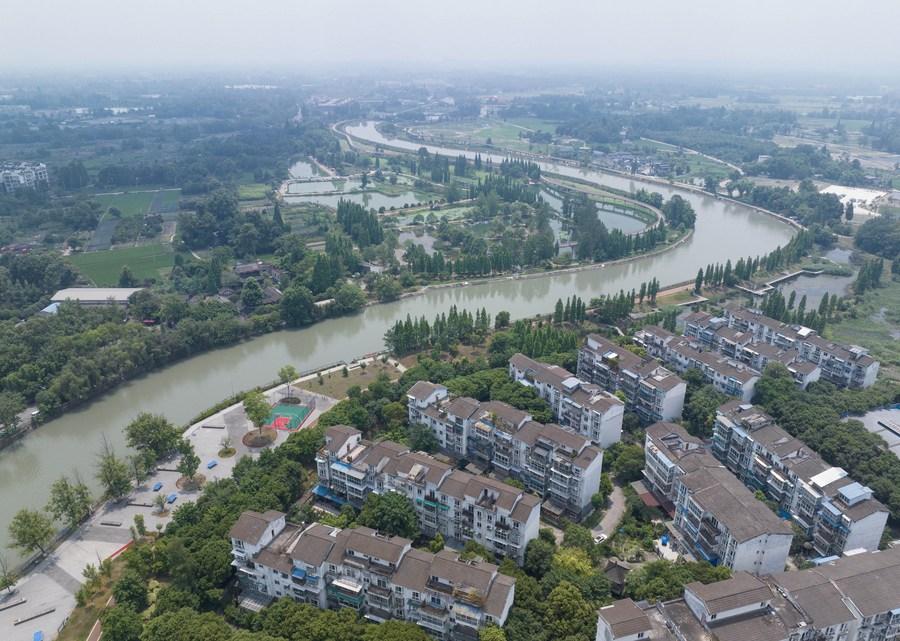

This aerial photo taken on June 23, 2023 shows residential buildings along the Xuyan River, a tributary of Jinjiang River, in Chengdu, capital
China's home prices in 70 large and medium-sized cities were generally stable in September, with first-tier cities seeing home prices basically unchanged, the National Bureau of Statistics (NBS) said Thursday.
New home prices in China's four first-tier cities, namely Beijing, Shanghai, Guangzhou and Shenzhen, were flat month on month in September, following a month-on-month decline of 0.2 percent in August, according to the NBS.
On a year-on-year basis, new home prices in the first-tier cities rose 0.7 percent last month.
However, new home prices in more than half of 70 surveyed cities, which include the four first-tier cities, maintained a downward trend in September. The data showed that 45 cities reported year-on-year drops in new home prices last month, up from 44 in August.
The data also revealed that prices of new homes in 31 second-tier cities and 35 third-tier cities edged down 0.3 percent in September compared to August.
China has stepped up policy efforts to promote the sound development of the property market over the past few months. Measures rolled out so far include cutting interest rates on existing mortgages for first-home loans and easing mortgage rules.
Data from the central bank last week showed that China's property sector, considered a major economic drag, is showing signs of recovery.
High-frequency data indicated a rebound in house transactions in major cities, and September credit statistics showed a month-on-month addition of over 100 billion yuan (about 13.93 billion U.S. dollars) in real estate development loans and individual mortgages.
The effects of the supportive policies will be unleashed gradually and produce positive impacts on the sector, NBS deputy head Sheng Laiyun said while speaking at a press conference on Wednesday.
It takes time for policies to take effect as the real estate sector is in the process of adjustment, Sheng said.
